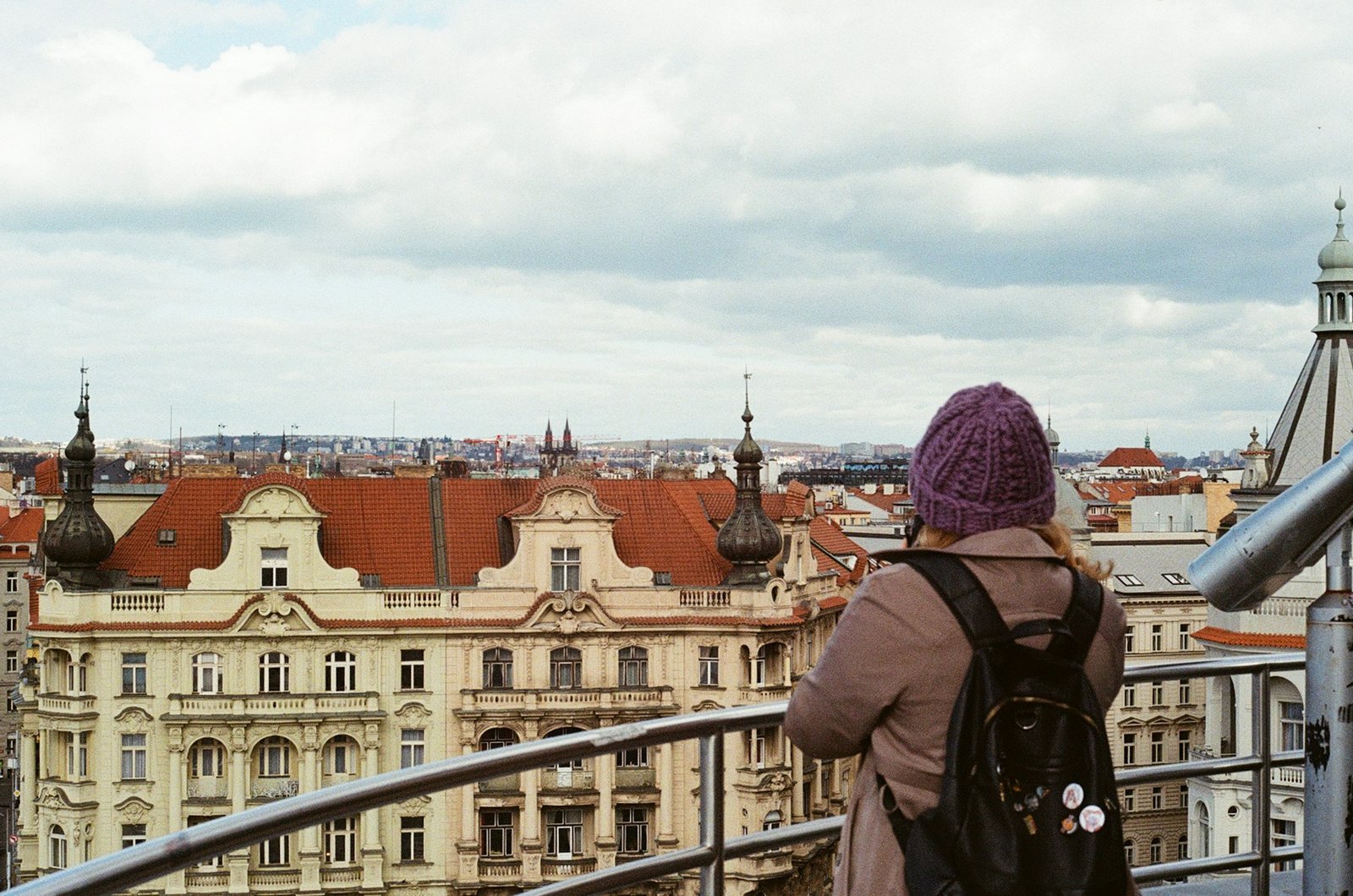Embarking on a solo travel Europe adventure offers an unparalleled opportunity for self-discovery, freedom, and unforgettable experiences. Whether you’re a seasoned independent explorer or planning your very first solo Europe trip, the continent’s diverse landscapes, rich history, and vibrant cultures provide an ideal backdrop for an independent journey. This comprehensive guide will delve into the 10 best solo travel destinations in Europe, offering valuable insights into why each city is perfect for singles travel, along with essential tips for solo travelers to ensure a safe and enjoyable experience. From discovering affordable solo travel Europe options to finding profound Europe travel inspiration, prepare to plan your next great adventure.
Why Solo Travel in Europe? Benefits & Common Concerns Addressed
Traveling alone provides a unique opportunity for self-directed adventure:
- Complete Freedom & Flexibility: Solo travelers enjoy total control over their itinerary, from spontaneous detours to lingering longer in a beloved spot. There is no need to compromise on activities, dining choices, or daily schedules, allowing for an entirely personalized experience. This autonomy means rising when desired, eating what appeals, and engaging in activities without external influence, leading to a truly bespoke adventure.
- Profound Personal Growth: Stepping out of one’s comfort zone in unfamiliar environments fosters greater self-confidence, independence, and resilience. Travelers develop essential life skills such as problem-solving, navigation, and organization, transforming perceived challenges into valuable learning experiences. The act of independently navigating a new place, from airport to hotel, can significantly boost one’s sense of capability.
- Deeper Cultural Immersion: Without the constant presence of familiar companions, solo travelers are often more inclined to interact with locals, participate in cultural activities, and gain a richer, more authentic understanding of their destination. This direct engagement with the local environment allows for a more profound connection to the culture, unmediated by the dynamics of group travel.
- Easier to Meet People: Paradoxically, solo travelers often find it significantly easier to strike up conversations and form meaningful connections with other travelers and locals. This occurs because individuals traveling alone are frequently perceived as more approachable and open to new interactions. This transforms a significant interpersonal concern—the fear of loneliness or lack of companionship—into a compelling advantage. When individuals travel alone, they are inherently more motivated to seek out social interactions, whether through communal hostel spaces, group tours, or simply engaging in small talk, which naturally leads to more connections than when traveling with a pre-existing group.
Addressing Common Solo Travel Concerns
While the benefits are compelling, it is natural for solo travelers to have reservations. This guide directly addresses these points:
- Safety: While safety is a primary concern for solo travelers, particularly women , Europe is home to some of the safest countries globally. Vigilance, situational awareness, and smart precautions are key to a secure journey. The perception of safety significantly influences destination choice, and countries with lower crime rates and robust healthcare infrastructure tend to see an increase in solo visits.
- Loneliness: The fear of loneliness is a common apprehension for solo travelers. However, Europe offers abundant opportunities to connect through social hostels, group tours, local events, and various apps designed for travelers. Many solo travelers report that while moments of solitude may occur, the overall experience is profoundly rewarding and often leads to more social interactions than anticipated.
- Budget: Solo travel can incur higher per-person costs due to the absence of cost-sharing for accommodations and other fixed expenses. A double room is rarely half the price of a single, leading to higher per-night costs for individual travelers. However, strategic planning—such as opting for hostels, utilizing efficient public transport, and embracing local food markets—can make a European adventure surprisingly affordable. The choice of destination also significantly impacts cost, with Southern and Eastern European countries generally being more budget-friendly than Northern Europe.
Reykjavik, Iceland 🇮🇸
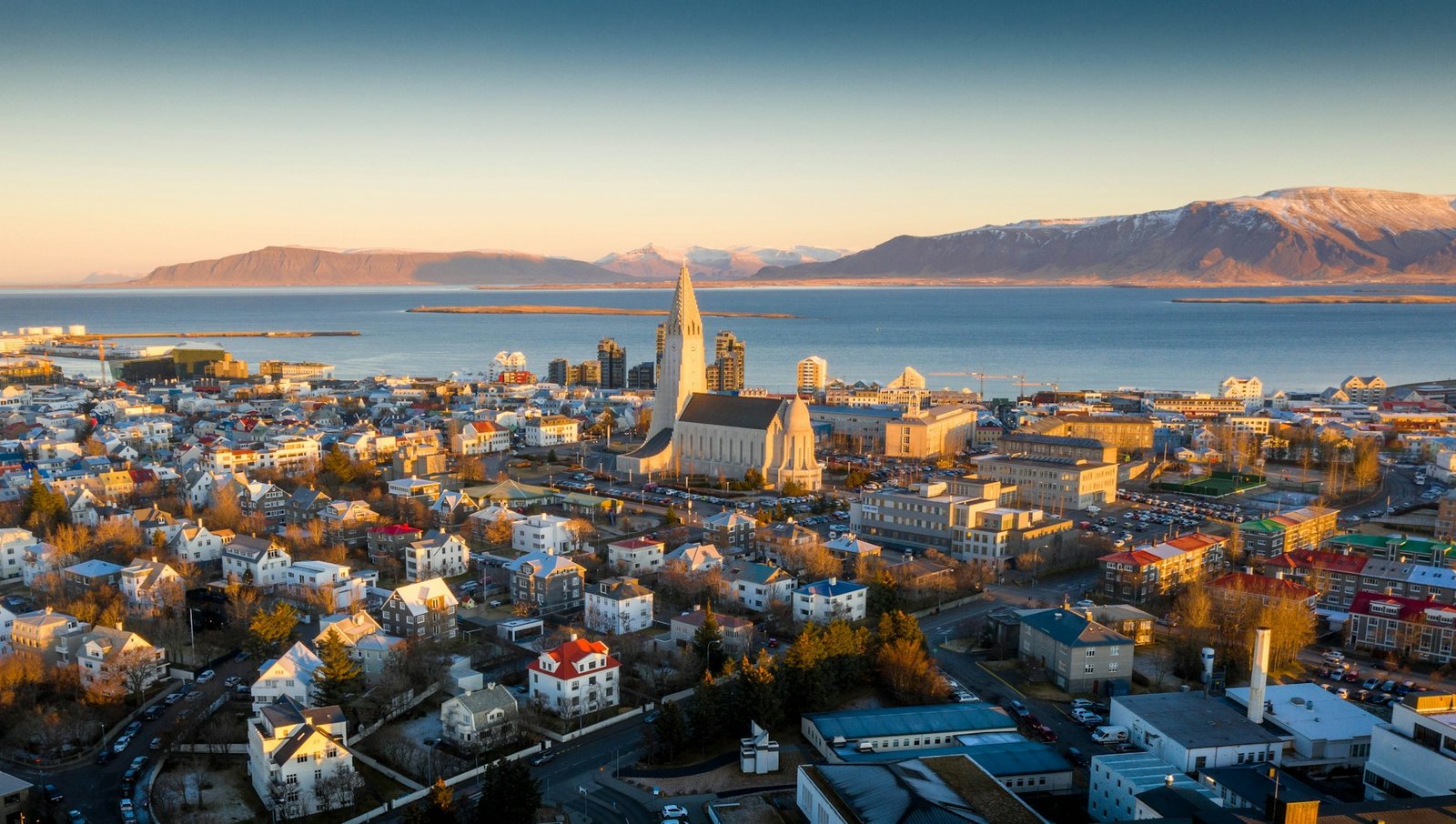
- Solo Traveler Appeal: Reykjavik is consistently ranked as the world’s safest country since 2008, with exceptionally low crime rates and a small, friendly, English-speaking population. This makes it an ideal, stress-free choice, especially for first-time solo travelers seeking peace of mind.
- Must-Do Activities: Travelers can witness the ethereal Northern Lights during winter or experience the endless Midnight Sun in summer. Indulge in thermal pools like the famous Blue Lagoon or Sky Lagoon. Explore the iconic Golden Circle, which includes the majestic Gullfoss Waterfall, the active Geysir Geothermal Area, and the historic Þingvellir National Park. Other thrilling options include whale watching tours, glacier hikes, or horseback riding through unique lava fields.
- Budgeting Insights: While Iceland has a reputation for being expensive, its stunning nature and hiking trails are entirely free to explore. Significant savings can be achieved by purchasing groceries and preparing meals in shared kitchens, particularly when staying in hostels or camping grounds. Utilizing budget-friendly options like the Flybus for airport transfers also helps manage costs.
- Meeting People: Hostels with shared kitchens and dining areas are excellent for connecting with fellow travelers. Joining group tours and excursions, such as Golden Circle or Northern Lights tours, provides built-in social opportunities and valuable local insights from guides.
Amsterdam, Netherlands 🇳🇱
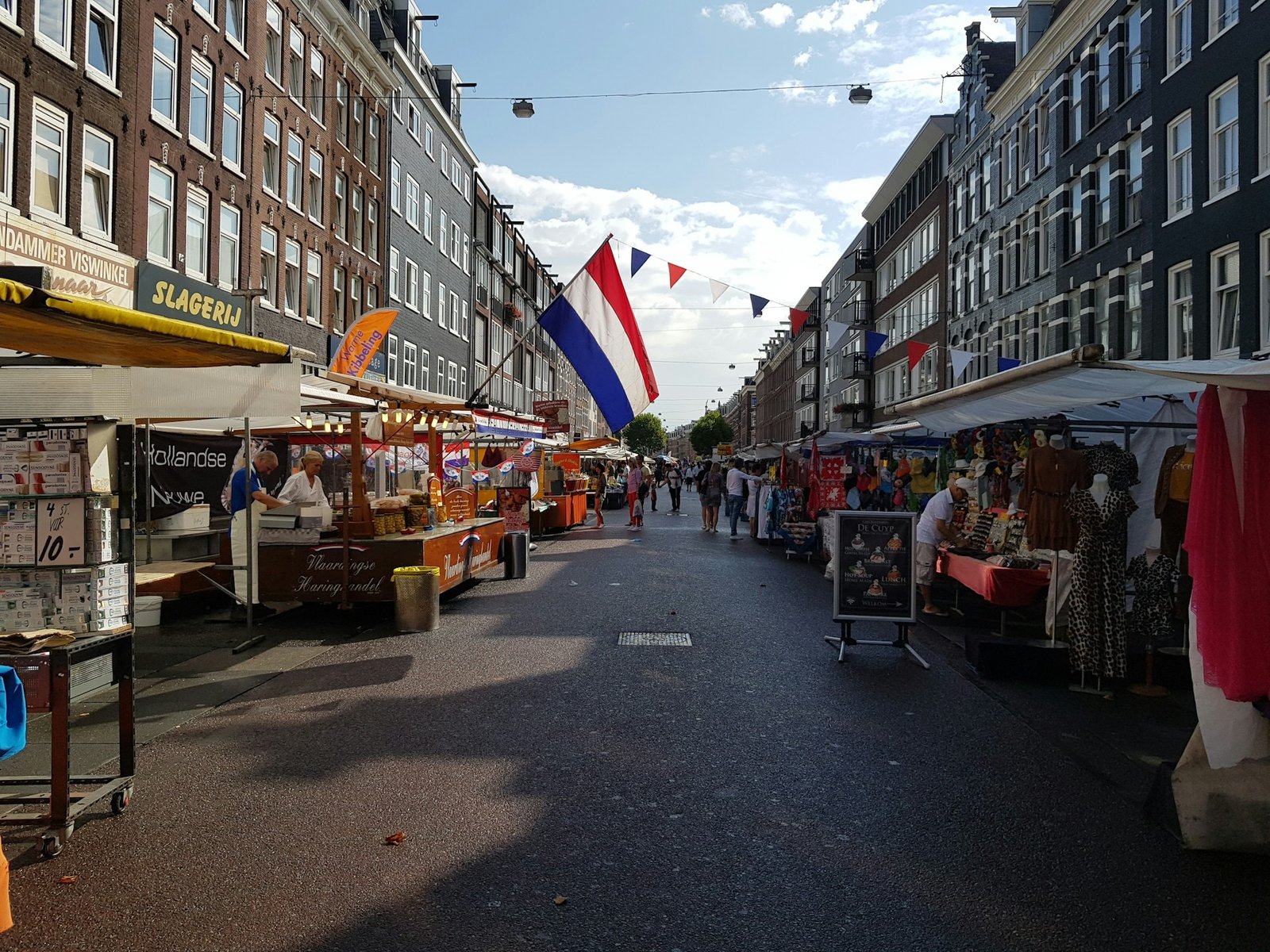
- Solo Traveler Appeal: Amsterdam is consistently ranked among the safest cities globally, holding the 2nd position for personal security and 6th overall. It is a compact city, incredibly easy to navigate by bike or on foot, and most locals are proficient in English, minimizing language barriers and enhancing the solo travel experience.
- Must-Do Activities: Explore the iconic canals, delve into world-class museums like the Anne Frank House, Van Gogh Museum, and Rijksmuseum. Renting a bike offers an authentic way to experience the city like a local. Travelers can also immerse themselves in the vibrant café culture or time their visit with one of Amsterdam’s many lively festivals.
- Budgeting Insights: Accommodation in Amsterdam can be expensive, so consider hostels, especially female-only options like Hostelle, or hotels located slightly outside the city center, which are well-connected by public transport. The Go City Card offers excellent value with free museum entry and unlimited public transport, significantly reducing sightseeing and transit costs.
- Meeting People: Hostels, particularly those with organized social events or on-site bars, are prime spots for meeting fellow travelers. Organized tours, such as Red Light District tours or pub crawls, provide a safe and structured way to experience nightlife and connect with others.
Lisbon, Portugal 🇵🇹
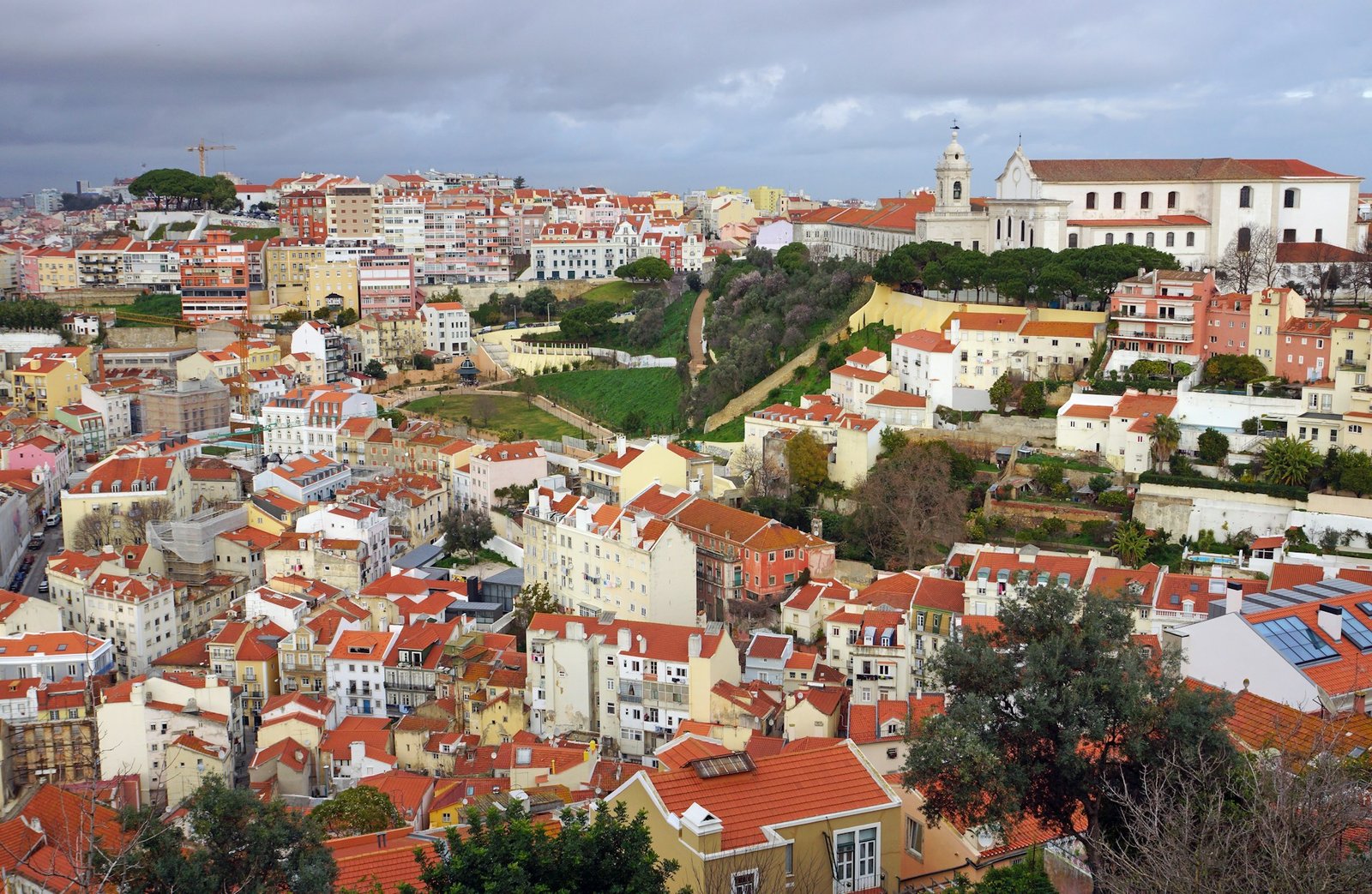
- Solo Traveler Appeal: Lisbon is ranked as the seventh safest capital worldwide, boasting low violent crime rates and generally well-lit main tourist areas. Locals are known for their warmth and welcoming attitude towards solo travelers, contributing to a comfortable and secure environment.
- Must-Do Activities: Wander through charming cobblestone streets, ride the picturesque yellow trams, and discover stunning viewpoints across the city. Explore historical sites such as the Tower of Belem, Jeronimos Monastery, and Castelo de S. Jorge. Immerse oneself in the thriving café culture or take an enchanting day trip to Sintra, a fairytale-like city with numerous castles.
- Budgeting Insights: Public transport and rideshares like Uber are remarkably affordable in Lisbon, offering cost-effective ways to navigate the city. The Lisboa Card provides significant savings with free transport and museum entries. Dining costs can be managed by exploring local markets for fresh ingredients and opting for the “Menu del Día” at local eateries, which offers multi-course meals at a fixed, affordable price.
- Meeting People: Free walking tours are an excellent way to cover ground, learn about the city, and meet fellow travelers. Food tours, hostel events, wine tasting sessions, cooking classes, or even apps like Timeleft can facilitate social connections, making it easy to engage with others.
Prague, Czech Republic 🇨🇿
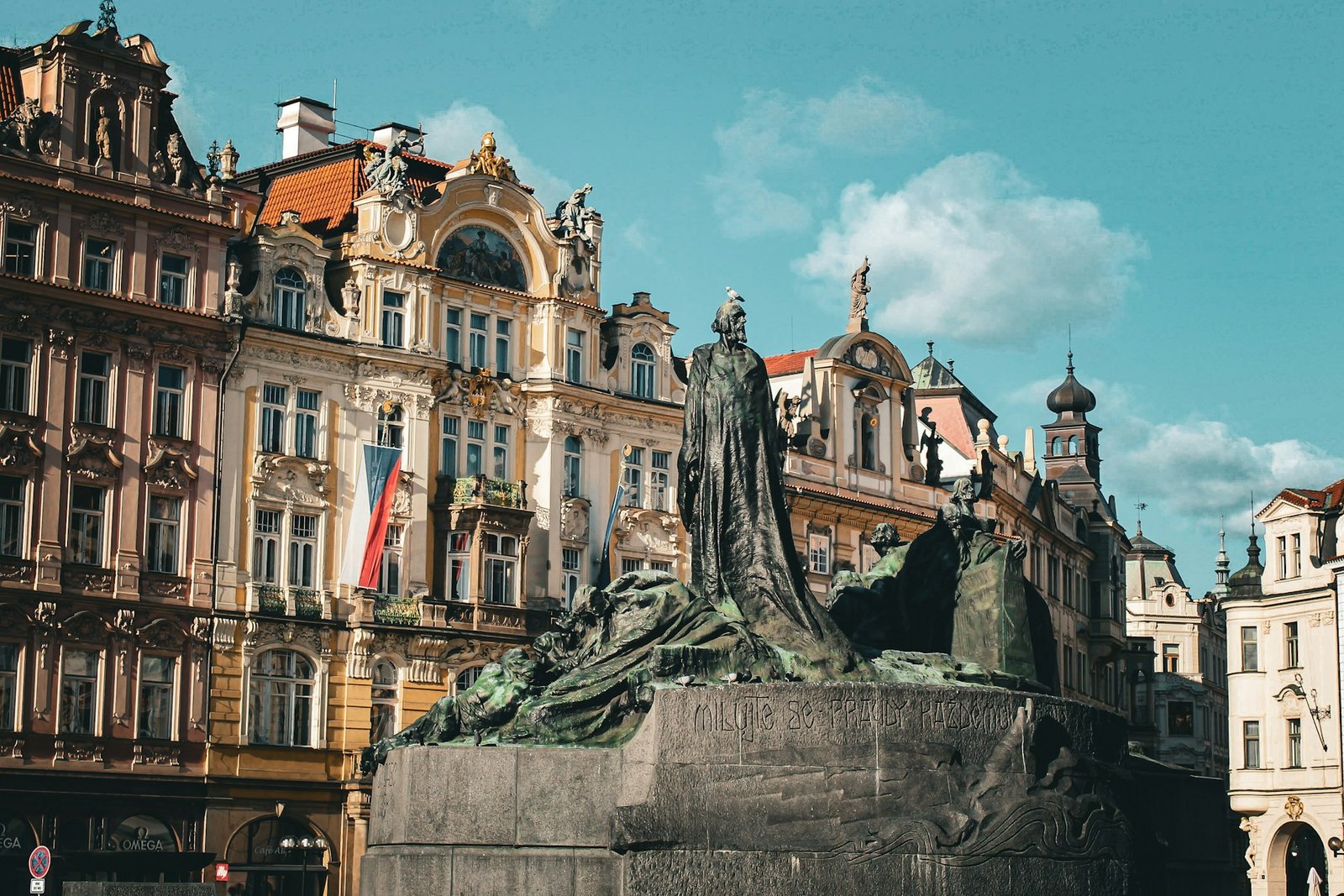
- Solo Traveler Appeal: Prague is a remarkably safe city with a low crime rate, where solo travelers can feel secure even when walking alone at night due to brightly lit streets and busy public transport. It is also significantly more affordable compared to many Western European capitals, offering excellent value for money.
- Must-Do Activities: Wander through the fairytale-like Old Town, cross the iconic Charles Bridge, explore the vast Prague Castle complex, and marvel at the Astronomical Clock. Visit the vibrant John Lennon Wall, enjoy the city’s lively arts scene, or attend a classical music concert for a profound cultural immersion.
- Budgeting Insights: Prague is very budget-friendly, with hostels offering incredibly cheap accommodation options. Travelers can maximize savings by utilizing free walking tours and indulging in delicious, affordable local street food, such as trdelnik.
- Meeting People: Hostels like Mosaic House and Sir Toby’s are excellent social hubs, often organizing events and fostering a communal atmosphere. Free walking tours, organized pub crawls, food tours, cooking classes, or language exchange meetups are also great ways to connect with other travelers and locals.
Florence, Italy 🇮🇹

- Solo Traveler Appeal: Florence is generally considered a safe destination with a low crime rate, making it comfortable for solo travelers. Italians are known for their kindness towards tourists, and the public transport system is efficient, contributing to a smooth solo travel experience.
- Must-Do Activities: Immerse oneself in Renaissance art and architecture by visiting the breathtaking Duomo, the Uffizi Gallery (a must-see for art lovers), or the Museo Galileo. Stroll through the city’s historic center, explore the famous shopping street Via de’ Tornabuoni, and enjoy panoramic sunset views from Piazzale Michelangelo.
- Budgeting Insights: Italy can be relatively affordable for solo travel with proper planning. Hostels offer budget-friendly accommodation options, with private rooms in hostels often providing better value than conventional budget hotels. Significant savings on food can be achieved by utilizing local markets to buy fresh produce, cured meats, and cheeses for picnics or self-prepared meals.
- Meeting People: Hostels with social events are ideal for meeting like-minded travelers. Group tours (e.g., through Get Your Guide), cooking classes, or simply striking up conversations at local coffee shops or bars can lead to new connections.
Dubrovnik, Croatia 🇭🇷
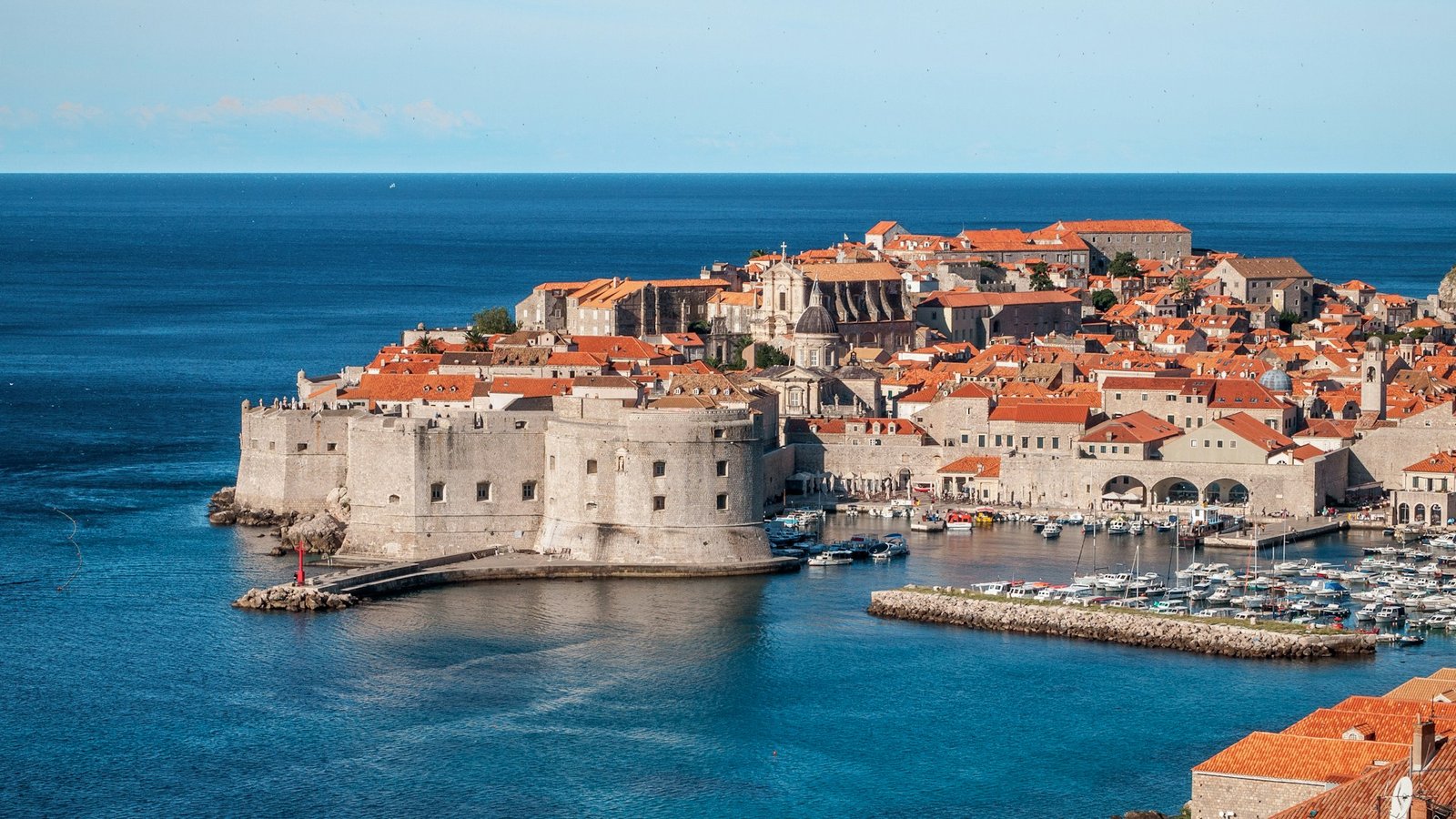
- Solo Traveler Appeal: Dubrovnik is well-established as a solo travel destination, boasting excellent tourism infrastructure and low crime rates, making it safe for independent explorers. English is commonly spoken in tourist areas, which simplifies navigation and interaction.
- Must-Do Activities: Walk the ancient city walls for unparalleled views of the Adriatic Sea and the red-roofed Old Town. Explore the charming Old Town’s narrow cobbled streets, kayak to Lokrum Island, and hike Mount Srđ for spectacular sunset vistas. Cultural experiences include visiting the Maritime Museum or enjoying an evening flamenco show.
- Budgeting Insights: Dubrovnik is generally more affordable than Western European counterparts, even during peak summer. Hostels offer budget-friendly accommodation options. Travelers can save on food and coffee by venturing just five minutes outside the city walls, where prices are often half that of tourist hot spots. Leveraging free attractions like Fort Lovrijenac (often included with a city wall ticket) and participating in hostel-organized dinners further aids budget management.
- Meeting People: Hostels are excellent for social interaction, frequently organizing weekly barbecue nights, cliff-jump outings, and wall-walk meetups. Free walking tours, sea-kayak groups (where guides often pair solo travelers), and cooking classes are also great ways to connect with others.
Vienna, Austria 🇦🇹
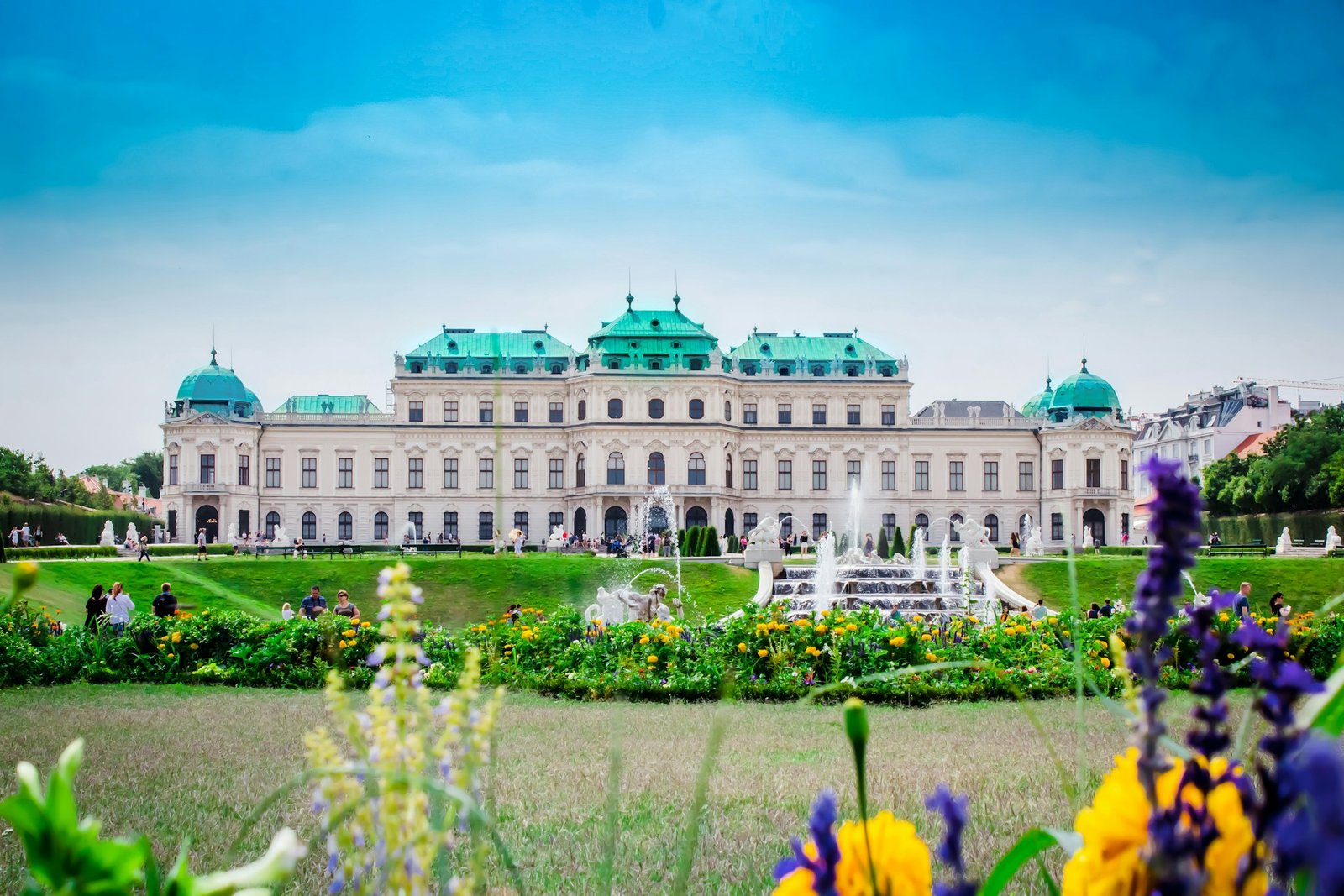
- Solo Traveler Appeal: Vienna is consistently ranked among the safest and most livable cities globally, making it a very comfortable destination for solo travelers. It boasts an efficient public transport system and well-lit streets, and English is widely spoken, simplifying navigation and communication.
- Must-Do Activities: Immerse oneself in culture by visiting world-class museums such as the Museum of Fine Arts, Albertina, and the Museumsquartier. Marvel at the stunning Viennese architecture, including Schönbrunn Palace and Hofburg Palace. Attend a classical music concert in the “City of Music” for an unforgettable cultural experience. Explore the vibrant Naschmarkt, or enjoy a unique perspective by kayaking on the Danube River.
- Budgeting Insights: Consider purchasing a Vienna PASS for cost-effective access to numerous attractions and public transport. Vienna’s tap water is of exceptionally high quality and safe to drink, eliminating the need for bottled water and providing a simple way to save money. Opting for accommodation slightly outside the Old Town can also lead to more reasonably priced options.
- Meeting People: Guided tours, including walking tours and bike tours, are excellent for meeting fellow tourists. Cooking classes offer a fun, interactive way to connect, and traditional Viennese coffee houses provide a relaxed setting for observation and quiet contemplation, where one might strike up a conversation.
Budapest, Hungary 🇭🇺
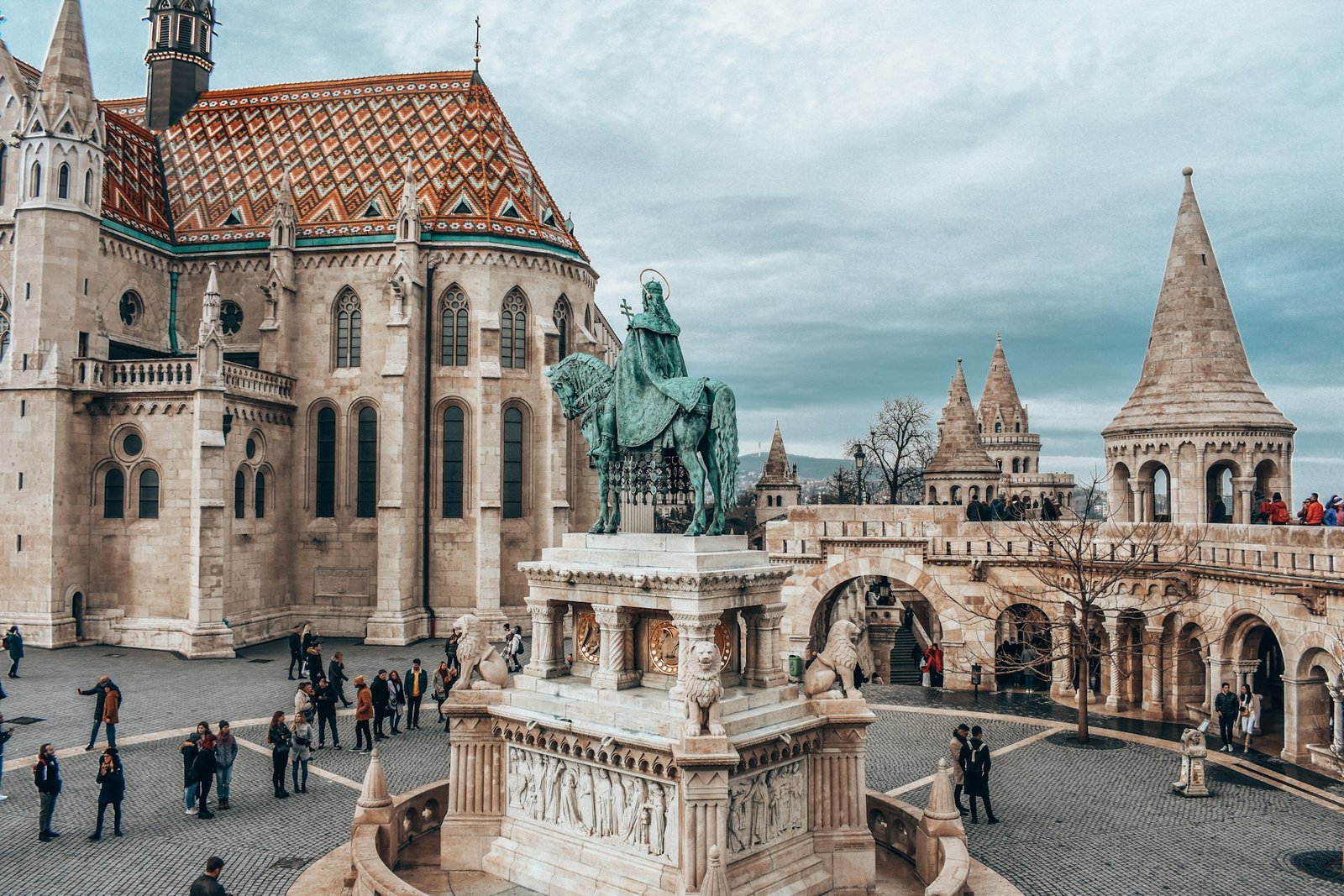
- Solo Traveler Appeal: Budapest is generally very safe with low crime rates, and its public transport system is reliable and secure, even at night. Budapest is notably more budget-friendly compared to many Western European cities, offering great value for solo travelers.
- Must-Do Activities: Indulge in the city’s famous thermal baths, such as Széchenyi, Gellért, or Rudas, for a unique relaxation experience. Explore the historic Buda Castle District, including Fisherman’s Bastion and Matthias Church. Marvel at the grandeur of the Hungarian Parliament Building. Experience the unique atmosphere of the ruin bars, or discover local delights at the Great Market Hall.
- Budgeting Insights: As one of Europe’s most affordable capitals, Budapest allows for budget-conscious travel. Travelers can take advantage of “Napi Menü” (daily lunch menus) at local eateries for inexpensive, multi-course meals. The public transport system is highly efficient and very affordable, making it easy to navigate the city without relying on costly taxis.
- Meeting People: Hostels like The Loft Hostel and Maverick Hostels are natural social hubs, often organizing events that encourage interaction. Ruin bars offer a unique, vibrant setting for mingling and striking up conversations. Free walking tours and Hungarian cooking classes are also excellent ways to connect with others.
Edinburgh, Scotland 🏴
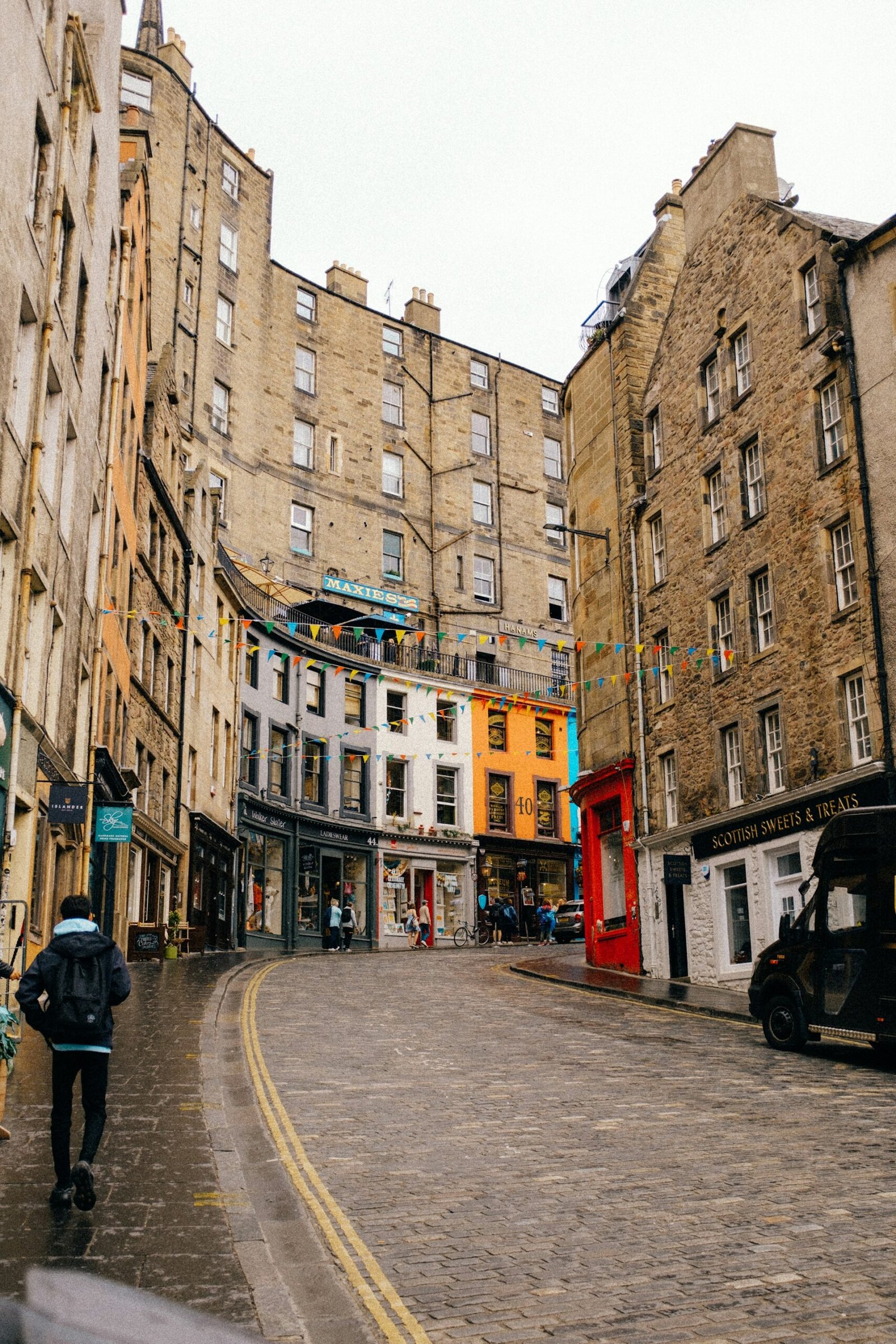
- Solo Traveler Appeal: Edinburgh is highly recommended for first-time solo female travelers due to its high safety ratings, excellent accessibility, and the renowned friendliness of its locals. The city is compact and highly walkable, making independent exploration a joy.
- Must-Do Activities: Explore the historic Royal Mile, visit the iconic Edinburgh Castle, and witness breathtaking sunsets from Calton Hill or by hiking Arthur’s Seat, an ancient volcano. Discover the magical Harry Potter locations that inspired J.K. Rowling, or immerse oneself in Scottish culture with a traditional whisky tasting.
- Budgeting Insights: Travelers can save on accommodation by opting for hostels or apartments with kitchenettes to prepare their own meals. Utilize walking, biking, or the well-connected public transport network instead of costly taxis. Take advantage of free or low-cost attractions like many museums and galleries, and free walking tours.
- Meeting People: Hostels are a prime way to meet fellow travelers. Joining free walking tours, food tours (e.g., Edinburgh Secret Food Tour), or pub crawls provides structured social opportunities to connect with others.
Porto, Portugal 🇵🇹
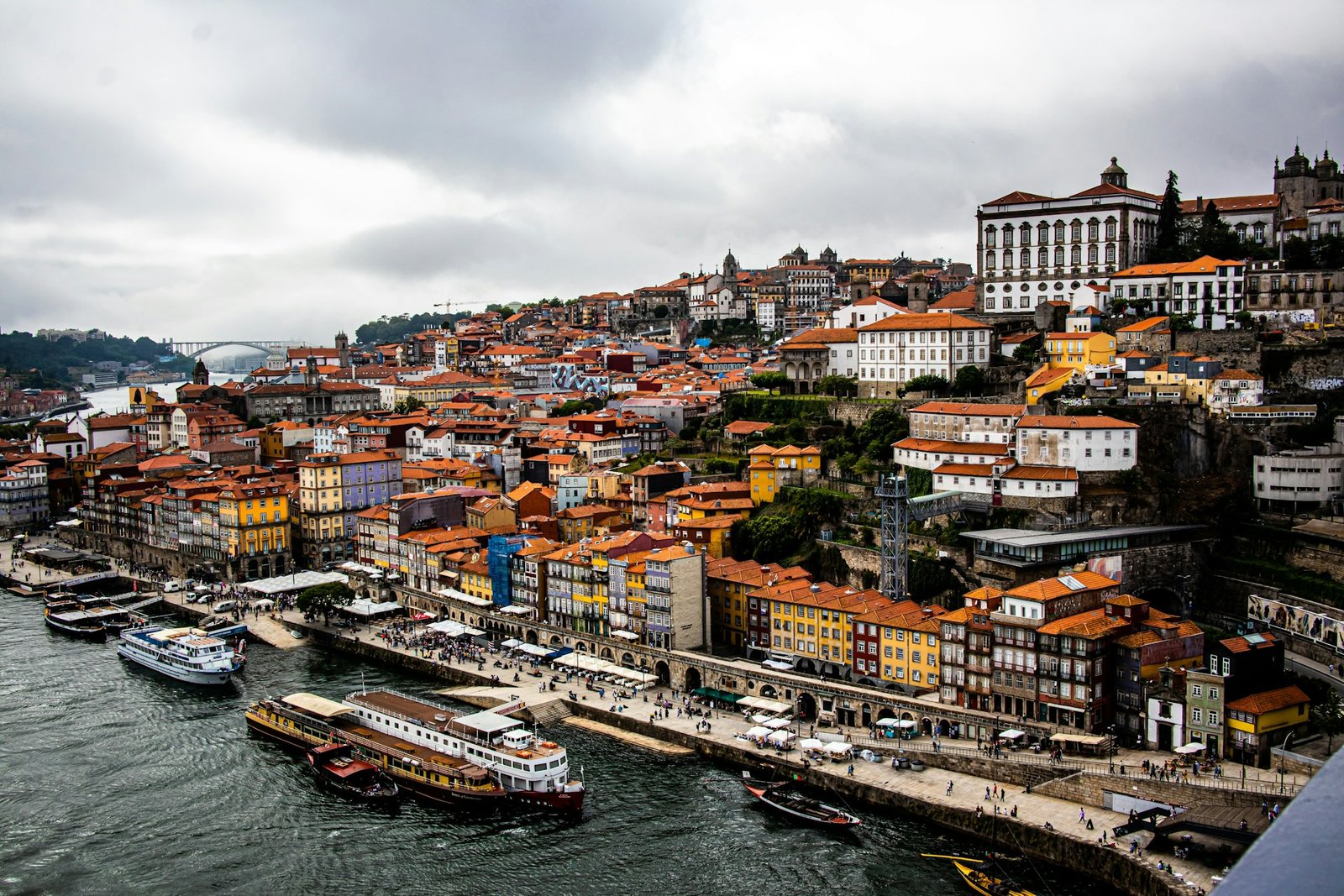
- Solo Traveler Appeal: Often considered a more laid-back yet equally captivating alternative to Lisbon, Porto boasts a stunning riverfront and a rich wine culture. Its welcoming atmosphere makes it an excellent choice for solo explorers seeking a relaxed European experience.
- Must-Do Activities: Explore the charming Ribeira district, take a scenic Douro River cruise, and visit historic port wine cellars for a tasting experience. Climb the iconic Clérigos Tower for panoramic city views, or browse the enchanting Livraria Lello bookstore, known for its stunning architecture.
- Budgeting Insights: Porto is generally more affordable than the capital, Lisbon, offering good value for money. Travelers can maximize their budget by indulging in delicious local eateries, which are often more reasonably priced than international chains, and by utilizing the efficient public transport system for getting around.
- Meeting People: Wine tastings offer a sophisticated yet social way to meet others, as participants often engage in conversation over shared interests. Joining food tours to sample local cuisine or staying in social hostels can also facilitate new connections with fellow travelers.
Essential Solo Travel Tips for Europe
Embarking on a solo adventure in Europe requires thoughtful preparation. These essential tips cover safety, budgeting, social connections, and practical packing advice to ensure a smooth and enriching journey.
Prioritizing Safety & Well-being
Safety is paramount for solo travelers, and proactive measures can significantly enhance peace of mind.
- Situational Awareness: Always be aware of your surroundings, especially in crowded tourist areas like markets or public transport hubs. Walk with purpose and avoid looking lost; use offline maps on your phone discreetly to prevent appearing vulnerable. Maintaining awareness is the top priority for 93% of solo travelers.
- Protecting Valuables: Utilize secure, zippered, cross-body bags. Distribute cash and cards across multiple hidden spots, such as a money belt or a scarf with a hidden pocket. Avoid openly displaying expensive items like cameras or large amounts of cash, as this can make one a target for petty theft. A significant majority of travelers use zippered pockets (65%) and separate valuables across bags (61%).
- Night Safety: Stick to well-lit and populated areas when out at night. Limit alcohol consumption to maintain awareness, and never leave your drink unattended. Always use reputable taxis or ride-sharing services, or rely on well-known public transport, which often runs late in major cities.
- Specific Considerations for Solo Female Travelers: Project confidence, even if it is not genuinely felt; walking with purpose can make one appear less vulnerable. Do not feel obligated to be polite to strangers who make one uncomfortable; firmly saying “no” and removing oneself from the situation is a smart self-protection measure. Consider carrying a personal safety alarm or mini pepper spray (after verifying its legality in the destination country).
- Importance of Travel Insurance & Emergency Contacts: Comprehensive travel insurance is a non-negotiable “financial guardian angel” for unexpected incidents like illness, injury, or lost luggage. Memorizing 112 (the universal European emergency number) and keeping embassy contact information readily accessible are crucial preparations. The recurring emphasis on “trusting your gut” or “trusting your instincts” across multiple safety discussions underscores that personal intuition is a critical, yet often overlooked, safety tool that complements external precautions. This suggests that effective solo travel safety is not solely about adhering to a set of rules but also about developing and heeding one’s own internal sense of potential danger, providing a deeper, more empowering safety approach for the traveler.
Smart Budgeting Strategies
Managing finances effectively is key to a successful solo European adventure.
- Accommodation Choices: Hostels, whether dorms or private rooms, are generally the most budget-friendly option and excellent for social interaction. Airbnb or homestays can also offer cost-effective alternatives, sometimes providing better value than traditional budget hotels. Always book accommodation well in advance, especially when traveling in Western Europe or during peak seasons, as prices can increase significantly closer to the travel date.
- Savvy Dining: Significant savings can be achieved by cooking meals in hostel kitchens or purchasing fresh ingredients from local markets. When dining out, choose local cafes, trattorias, or pubs away from main tourist hotspots, where prices are often inflated. Look for “Menu del Día” (daily lunch menus), which offer multi-course meals at a fixed, affordable price, particularly common in Southern Europe.
- Efficient Transportation: Prioritize walking to explore cities, as it is free and allows for deeper discovery of hidden gems. For longer distances, utilize Europe’s efficient and affordable public transport systems (metro, bus, tram). Avoid taxis whenever possible due to their high cost. For inter-city travel, consider budget-friendly bus services like Flixbus. The repeated advice for “slow travel” as a budget strategy implies a significant trade-off between the speed of travel and overall cost. This suggests a deeper consideration of how one’s travel style fundamentally impacts the budget, beyond just individual expenses. By spending more time in one location, travelers reduce the frequency of expensive inter-destination journeys, which often represent the largest single expense, thereby demonstrating a direct causal relationship between travel pace and financial outlay.
- Leveraging Free Attractions & Off-Season Travel: Research museums with free entry days, public parks, and free walking tours to minimize sightseeing costs. To save on flights and accommodation, consider traveling during the off-peak seasons, such as January or November, when prices are significantly lower due to reduced demand.
Connecting with Others & Cultural Immersion
Solo travel does not mean traveling alone; it often provides more opportunities for connection.
- Strategies for Meeting People:
- Hostels: These are often the easiest way to meet fellow travelers, even when opting for a private room. Many hostels organize social activities, have on-site bars, or communal kitchens that encourage interaction and spontaneous conversations.
- Group Tours & Activities: Joining free walking tours, food tours, cooking classes, pub crawls, or day trips is highly effective. Individuals who sign up for these activities are typically open to socializing, making it easy to strike up conversations and form temporary travel companionships.
- Apps & Online Communities: Leverage platforms like Meetup, Bumble BFF, Couchsurfing Hangouts, the Travel Ladies app, or solo female travel Facebook groups to connect with like-minded individuals or locals who share interests.
- Local Events & Markets: Attending local festivals, joining a yoga or language class, or exploring bustling farmer’s markets provides authentic settings for interaction with both locals and other travelers.
- Be Open & Confident: Cultivate an approachable demeanor. Simple gestures like offering to take someone’s photo or engaging in small talk can open doors to new connections.
- Basic Language Phrases: Learning a few basic phrases—such as “hello,” “please,” “thank you,” and “excuse me”—is a sign of respect and can significantly enhance interactions with locals, especially in regions where English proficiency may be lower.
- Navigating Cultural Differences:
- Dining Etiquette: European meals are typically more leisurely affairs. It is polite to wait for everyone at the table to be served before starting to eat and to use utensils properly (two-handed eating is common in many regions). Do not expect free tap water or a wide array of salad dressings; oil and vinegar are standard.
- Tipping Practices: Tipping customs vary widely across Europe. Always check if a service charge is already included in the bill to avoid over-tipping; if not, a smaller percentage than in the US is often customary.
- Punctuality: Being on time for appointments, meetings, and reservations is highly valued and considered a sign of respect in many European countries.
- Dress Code: Dress modestly when visiting religious sites (covering shoulders and knees). Avoid overly casual or provocative clothing in cities to blend in and reduce unwanted attention or potential scams. The advice to “blend in” and “dress appropriately” is not merely about cultural respect but also serves as a direct safety measure to avoid appearing as an obvious tourist target. This connection between appearance and safety suggests that thoughtful wardrobe choices can actively reduce vulnerability to scams or unwanted attention.
- Money Transactions: Some Europeans prefer money to be placed on the counter rather than handed directly to them, and similarly, change may be placed on the counter or in a small dish. This practice is often rooted in hygiene and fraud prevention.
Packing Like a Pro
Efficient packing is crucial for solo travel, maximizing comfort and minimizing hassle.
- Versatile Clothing: Pack 3-5 versatile tops and 2-3 bottoms, including a mix of casual and semi-formal options. Prioritize lightweight, breathable, and quick-drying materials to minimize laundry and luggage weight. Include one lightweight jacket or sweater, with heavier options if traveling in colder climates.
- Comfortable Footwear: This is paramount for European travel, as extensive walking is highly probable. Pack at least one pair of comfortable walking shoes, along with sandals or flip-flops. Consider hiking boots if the itinerary includes outdoor adventures. The repeated emphasis on “comfortable walking shoes” and “packing light” subtly links to both physical comfort and enhanced safety. Heavy or uncomfortable luggage can make a traveler slower, more distracted, and an easier target for petty crime, thus reducing overall agility and awareness.
- Essential Electronics & Adapters: Do not forget a phone and its charger, a portable power bank, and a universal travel adapter to keep all devices powered across different European countries.
- Safety Items: Include a small first aid kit, any personal medications (with prescriptions if necessary), a travel security lock for bags (especially in hostels), and an anti-theft bag. Always keep digital and physical copies of important documents, such as passports and insurance details, stored separately.
- Cultural Dress Considerations: Carry a light scarf or pashmina, which can be quickly used to cover shoulders when visiting religious sites, adhering to local customs and showing respect.
Conclusion
Solo travel through Europe offers an unparalleled opportunity for personal growth and profound cultural engagement. This guide has highlighted the empowering benefits of independent exploration, including the freedom to craft a personalized itinerary, the development of essential life skills, and the unique ability to immerse oneself deeply in local cultures. The paradox of solo travel—that it often leads to more connections with others—underscores its potential to transform perceived isolation into rich social experiences.
With smart planning and the actionable tips provided, common concerns about safety, potential loneliness, and budget can be confidently managed, transforming perceived challenges into exciting opportunities. The emphasis on situational awareness, strategic budgeting, and thoughtful cultural engagement ensures that travelers are well-prepared for a secure, enjoyable, and financially viable adventure. The interconnectedness of these practical tips, such as how dressing appropriately enhances safety or how slow travel impacts budget, reveals a holistic approach to a successful solo journey.
The continent of Europe, with its diverse landscapes, rich history, and welcoming infrastructure, is ready to embrace independent adventurers. Travelers are encouraged to embrace the journey, trust their instincts, and embark on their own unforgettable European story. The ultimate goal is to leave the reader feeling empowered and eager to convert their informational query into a real-world, transformative solo adventure.
